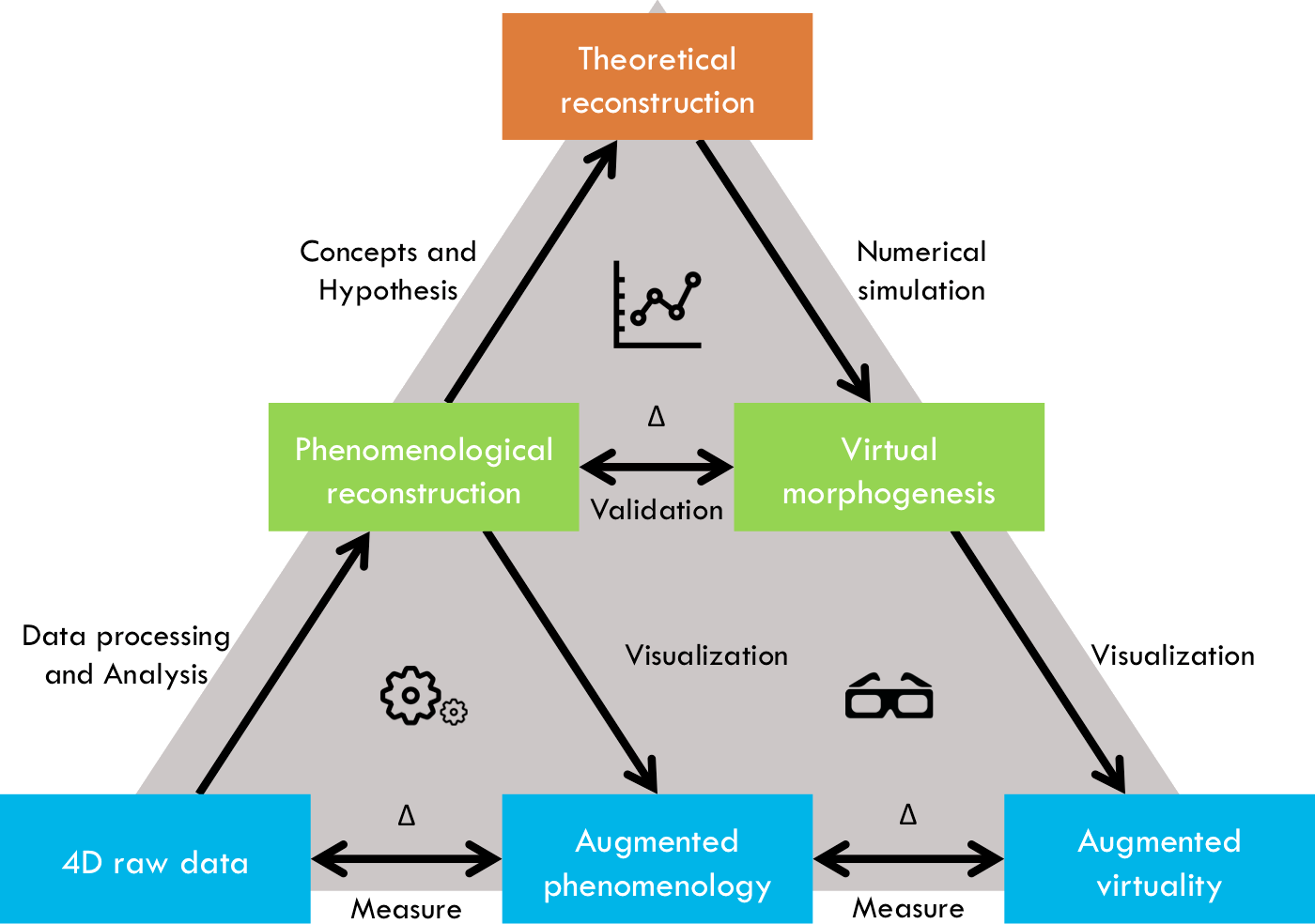Expertise
We develop, apply to specific case studies, and offer as services, original methodologies and tools for the multi-scale phenomenological and theoretical reconstruction of the development of model organisms, animal or vegetal. Our strategies include designing sensors for biological activities, in vivo and in toto imaging by selective plane illumination microscopy (custom made setups) and multiphoton laser scanning microscopy (custom adapted setups), image processing, data analysis and modeling.

This diagram summarizes our general methodology for the integrative modeling of living systems' morphogenesis. Ultimately, imaging data revealing the characteristic scales of biological processes should lead to models coupling the different organization levels of developing organisms (molecular, cellular and tissular). The architecture of the workflow operating through our web service is in addition ready for the integration of new algorithms that would operate on other types of data. We call phenomenological reconstruction (middle-left panel and underlying triangle graph) the set of operations based on algorithmic methods to extract measurements from 3D+time images and provide the most accurate quantitative information relevant to the detected components. Quantitative results are then used to set the parameters of theoretical models (top panel) and their derived numerical simulations, leading to a virtual morphogenesis (middle-right panel). This scheme creates a virtuous cycle of experimental validation of the models (top triangle graph) by questioning both the biological system and the simulation. Measuring the differences (∆'s) between the raw data (imaged specimen), the phenomenological reconstruction (reconstructed specimen) and the simulation (simulated specimen), constitutes a major challenge.
